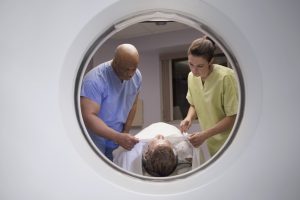
First author Mark Frye said, “The potential of having a biological test to help accurately diagnose bipolar disorder would make a huge difference to medical practice. It would then help clinicians to choose the most appropriate treatment for hard-to-diagnose individuals.”
Observed symptoms and patient interviews are the standard when it comes to diagnosing psychiatric conditions such as bipolar disorder. The information gathered is then compared to diagnostic criteria in order to make a diagnosis. Unlike other medical conditions, there aren’t any known biomarkers to confirm clinical diagnosis, which is essential in distinguishing between disorders and can assist in improving treatment methods.
The study examined 272 different proteins in blood samples of 288 patients. Forty-six of the patients were diagnosed with bipolar 1; 49 were diagnosed with bipolar 2; and 52 had unipolar depression. Patients were compared with 141 individuals without any mood disorders. After adjusting for variables, the researchers found 79 proteins that differed among the four groups. There was a significant difference in six proteins between bipolar 1 and the controls.
The researchers believe this could be “one of the first studies to assess the feasibility of high throughput multiplexed immunoassay technology (272 proteins) trying to distinguish different types of mood disorders.” The findings need to be replicated on a larger scale in order to determine the role of these six biomarkers and how they can be used in diagnosing mood conditions such as bipolar disorder.
MRI scan uncovers differences in bipolar disorder
An alternative study has used MRI scan to offer new insight in regard to the brains of bipolar patients. Researchers from the University of Iowa found previously unrecognized differences in the brains of bipolar patients. Specifically, the study found differences in white matter and the cerebellum, which previously was not believed to play a role in bipolar disorder.
Senior study author John Wemmie said, “This imaging technique appears to be sensitive to things that just have not been imaged effectively before. So it’s really providing a new picture and new insight into the composition and function of the brain [in bipolar disease].”
The study examined 15 patients with bipolar disorder and 25 controls. The team used MRI technique known as quantitative high-resolution T1 rho mapping, which is sensitive to certain by-products of cell metabolism. When the brains of both groups were compared, bipolar patients had an elevated MRI signal in the brain’s white matter and cerebellum. This may be caused by a reduction in pH or a reduction in glucose concentration, both commonly found in bipolar disorder.
Wemmie added, “Our study was essentially exploratory. We didn’t know what we would find. The majority of bipolar disorder research has found differences in the frontal region of the brain. We found focal differences in the cerebellum, which is a region that hasn’t really been highlighted in the bipolar literature before.”
Treatment for bipolar disorder
A treatment plan for bipolar disorder isn’t simply black or white, and for best results many treatment options may be utilized together. For example, medications and therapies may be combined to not only control bipolar disorder from a chemical standpoint, but to offer coping mechanisms to the patient as well. Because bipolar disorder may cause problems and challenges in the patient’s life, therapy can help ease these problems and offer coping mechanisms and solutions in order to improve them.
Working closely with your doctor and therapist is best in order to receive the most effective treatment, both medically speaking and in your personal life, too.
Related Reading:
Bipolar disorder can be prevented with brain wiring changes
A new study suggests that people who have a high genetic risk for bipolar disorders can benefit from naturally occurring brain wiring changes. In fact, the study, which was published online on Jan. 5 in the journal Translational Psychiatry, reveals that the changes can prevent the mental illness.
Bipolar disorder patients present with severe mood swings, fluctuations in energy and activity levels, and the ability to perform daily tasks. Continue reading…
Bipolar disorder may benefit fro omega-3 fatty acids
Research has found a small link between bipolar disorder and omega-3 fatty acids. To achieve their results, researchers compared 27 bipolar patients with 31 individuals without mental illness. The researchers found that those with bipolar disorder had the lowest levels of omega-3 fatty acids. Continue reading…
Sources:
http://www.sciencedaily.com/releases/2015/12/151208133438.htm
http://www.eurekalert.org/pub_releases/2015-01/uoih-npn010515.php
http://www.helpguide.org/articles/bipolar-disorder/bipolar-disorder-treatment.htm